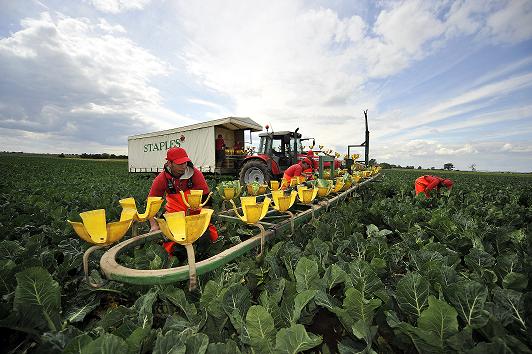
Staples Vegetables in Boston, Lincolnshire, one of the biggest producers of vegetables in the UK, is the first of the anaerobic digestion projects funded through the Government’s Environmental Transformation Fund to be officially opened in 2011.
Funded by the Environmental Transformation Fund – a collaboration between Defra, DECC and WRAP (Waste & Resources Action Programme) aiming to increase confidence across the supply chain in AD as a sustainable technology, Staples will produce 11 million kilowatt hours of electricity per year.
The state of the art technology is capable of processing 40,000 tonnes of out of specification and by-passed vegetables, every output from the technology will be used to benefit the business and reduce cost. Digestate will replace inorganic fertiliser, heat will be captured for office heating, innovative heat absorption coolers will chill the processing areas, and electricity generated will power the plant.
Vernon Read, Managing Director at Staples said: "The project will provide integrated power generation giving us control not only over future pricing of power, but also over power security."
With three additional Government supported AD facilities opening this Spring and over 30 in the planning stage it’s fair to say that AD is now well on the way to being a tried and tested technology for the treatment of food waste in the UK.
As a sustainable technology, it has won approval and secured confidence from across the industry, government and consumers. And thanks to increased awareness of food waste, it’s a growing part of the solution with both local authorities and retailers alike.
Marcus Gover, Director of Market Development at WRAP believes the market, including investors, developers and end users, should be confident of AD as a reliable, safe and profitable resource efficiency process.
"We’re delighted this facility is now available in Lincolnshire and that the robust benefits of anaerobic digestion technology will be reaped not only by Staples Vegetables, but local authorities, communities and businesses across the UK as this technology becomes increasingly mainstream.
"AD is a growing part of the resource efficiency solution, capable of reducing biodegradable waste from landfill so reducing methane emissions, creating renewable energy, stimulating the green economy and improving the sustainability of commercial agriculture."
